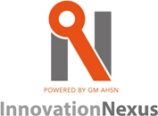Product development
The development of a product from concept through prototyping and testing to product realisation can be a costly and lengthy process. It can be very easy to waste time and money if the correct steps are not taken in the right order. If you are new to the process, engaging experienced partners and consultants at an early stage could help you navigate the way most efficiently.
Top tips for product development
1 – Evaluate your idea honestly
Does the idea have value to other people? Is there a real need? Will people pay for it? What is already out there? Has the same idea already been patented? Do other solutions address the same problem just as well, or even better? Do the costs add up?
2 – Understand the regulatory framework
There are a variety of regulatory frameworks that could apply to your product. Medical devices in particular have a number of regulatory requirements and quality standards that must be met. It is really important that you understand these in advance as some standards can apply to the early stages of development and could delay your project if not addressed until further down the line.
Standards can sometimes be found in public libraries – for example, the Manchester Central Library has a Business and Intellectual Property Centre which provides free access to a comprehensive collection of business and intellectual property databases and publications.
3 – Explore all your options
Don’t just pursue one route – explore alternatives to the idea you have come up with. This is especially important for the development of medical devices, which, in order to meet ISO13485, must have included investigation and risk analysis of alternative solutions. This should be done before you apply for a patent to avoid delaying the patent process once it is started or even potentially invalidating your patent, thereby allowing others to develop your idea.
4 – Find the best partners
A product development project needs good leadership to stay on track. It is important to involve key stakeholders – clinicians, patients, other users – early on, but strong, commercially-minded leadership is needed to drive the project forwards and develop a commercially successful product.
Partnering with experienced consultants with expertise in product design, regulatory issues and NHS engagement can be extremely beneficial for innovators with little experience of developing a product for the NHS market. Seeking advice early on can make sure that you take the appropriate steps in the right order and don’t waste time having to back-track to tasks that should have been done earlier.
5 – Expect to pay!
Costs to develop a product from concept to product realisation vary widely depending on the product and its use. Whatever your product, it will probably cost more than you first imagine. Seek expert advice to get a realistic idea of costs from the start.
 Product Development Associates
Product Development Associates
 Lucid Innovation
Lucid Innovation
 Kershaw Technology Services
Kershaw Technology Services
 TRUSTECH
TRUSTECH
 Fab Lab Manchester
Fab Lab Manchester
 Intrada Creative
Intrada Creative
 Medilink North West
Medilink North West
 ORCHA
ORCHA
 Kasmir Consulting
Kasmir Consulting
 MAE Consulting Group
MAE Consulting Group
 NRJ Solutions
NRJ Solutions
 Inovus
Inovus
 Useful links
Useful links
 Other resources
Other resources
IDC Inventors Guide
Free inventorurs guide developed by the Industrial Design Consultancy Ltd.
 Latest news
Latest news
 MIMIT FORUM: Innovation Opportunities
MIMIT FORUM: Innovation Opportunities
 Supporting a digital solution to diabetes foot health
Supporting a digital solution to diabetes foot health
 Early Diagnosis Industry Challenge – 22 February to 30 March 2017
Early Diagnosis Industry Challenge – 22 February to 30 March 2017
 Futuristic Flyers for the NHS
Futuristic Flyers for the NHS
 Event: Joint EFGCP-MedTech Europe conference, London, June 2015
Event: Joint EFGCP-MedTech Europe conference, London, June 2015
 BSI publishes a code of practice for health and wellness apps
BSI publishes a code of practice for health and wellness apps
 Associated topics
Associated topics
Get Involved
Are you interested in working with the GM AHSN to provide support to businesses working in the healthcare sector? Would you like to be listed as an Associate on the Innovation Nexus portal? Contact us to discuss how we could work together.
